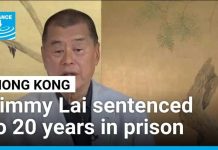
One former media host’s battle for freedom inside a dementia facility reveals how easily basic American rights can be eroded—raising urgent questions about autonomy, accountability, and the threat of unchecked institutional power.
Story Highlights
- A former host, despite retaining decision-making abilities, is confined in a dementia facility and fighting for the right to leave.
- Federal laws guarantee dignity and participation in care decisions, but enforcement remains inconsistent, leaving residents vulnerable.
- Family members, facility staff, and advocates clash over whether safety justifies restricting personal liberty.
- The case has sparked legal action, media attention, and calls for reform in the treatment of dementia patients.
Public Outcry as Autonomy is Denied in Dementia Facility
A former media host, now a resident of a long-term dementia care facility, has ignited a national debate by publicly campaigning for the right to leave despite retaining some ability to make decisions. This individual, whose career was built on public engagement and personal agency, is now restricted from leaving the facility—an outcome justified by staff and some family members as necessary for safety. Yet, the host’s advocacy has brought much-needed attention to the struggle many Americans face when their autonomy is limited by institutional authority, regardless of their actual capacity to live independently.
The legal framework meant to protect residents, notably the Nursing Home Reform Act, guarantees rights to dignity, respect, and involvement in care planning. However, real-world enforcement is inconsistent. Facilities often err on the side of restriction, especially when family or legal guardians support such measures. Critics argue this approach undermines the very freedoms that laws are intended to protect, transforming supportive care into a form of institutional control. The result is a system where residents with cognitive impairment—already vulnerable—can be denied the basic freedoms most Americans take for granted.
Stakeholders: Power Imbalance and Conflicting Interests
The central figure’s quest for freedom puts a spotlight on the complex web of stakeholders: the resident, whose wishes are at odds with those of family members or guardians; facility administrators, who prioritize risk management; legal advocates determined to defend constitutional rights; and regulatory agencies tasked with oversight. Power is typically concentrated in the hands of facility staff and legal guardians, often leaving the resident with little recourse unless outside advocates or the media intervene. The long-term care ombudsman serves as an independent mediator, but their ability to enforce change is limited when facilities and families align to restrict autonomy.
Conflicting perspectives abound. Family members may insist on restrictions out of genuine concern or misunderstanding of the individual’s remaining abilities. Facility staff cite safety and liability, invoking the specter of harm to justify blanket policies. Meanwhile, legal and advocacy groups warn that such justifications are too often used to shortcut due process and erode civil liberties. The media’s role—amplifying the resident’s story—can tip the balance by bringing public scrutiny to institutional practices that might otherwise remain hidden.
Legal and Ethical Tensions: Protection Versus Liberty
The heart of the controversy is the tension between protecting individuals from harm and respecting their right to self-determination. Experts point out that federal and state statutes, including the Nursing Home Reform Act, mandate resident participation in care decisions. Yet, enforcement is patchy, and loopholes allow facilities to default to the lowest common denominator of safety, often at the expense of dignity. Legal challenges are complicated by the need to prove neglect or wrongful confinement, a high bar that leaves many residents with little hope for redress.
Scholars and ombudsmen agree: the current system too often fails to distinguish between necessary protection and paternalistic overreach. Calls for reform emphasize the need for individualized care plans and better staff training to recognize and respect each resident’s unique capabilities. Until then, residents like the former host remain at the mercy of institutions that, under the guise of care, may perpetuate the very injustices America’s founding principles were meant to prevent.
Broader Implications: A Call for Transparency and Reform
This case has galvanized advocates and lawmakers, with increased scrutiny of facility practices and renewed demand for transparency. Legal proceedings and media coverage have already prompted reviews of care plans and facility policies. In the short term, the host’s campaign has forced administrators to justify their decisions and sparked conversations about the rights of all dementia patients. Long term, this battle could set crucial precedent for future cases, encouraging more resident-centered care and systemic reform.
The broader impact is clear: as America’s population ages, more families face similar dilemmas. Economic, social, and political consequences are inevitable, from legal costs and liability for facilities to increased demand for regulatory oversight. For conservatives concerned about government and institutional overreach, this story is a reminder that vigilance is required—not just against bureaucratic excess in Washington, but anywhere individual liberty is threatened in the name of safety.
Sources:
The Rights of Nursing Home Residents with Dementia
Legal Rights of Dementia Patients in Nursing Homes
The Ombudsman: An Advocate for Families
Ensuring Quality Care: The Legal Rights of Dementia Patients in Nursing Homes
Support People Living with Dementia
Ethics and Elder Care: The Case of Dementia
Advocate for Your Loved One with Dementia



